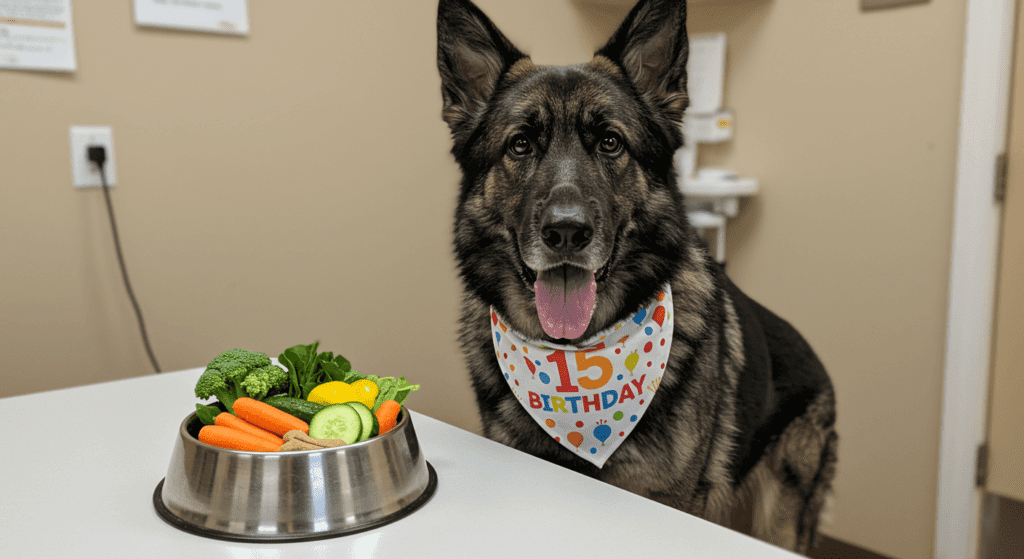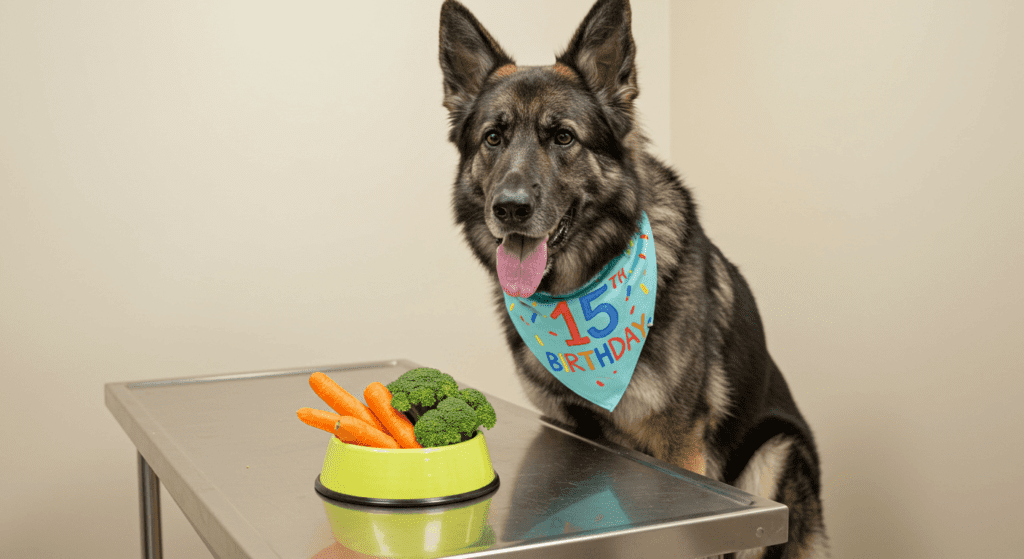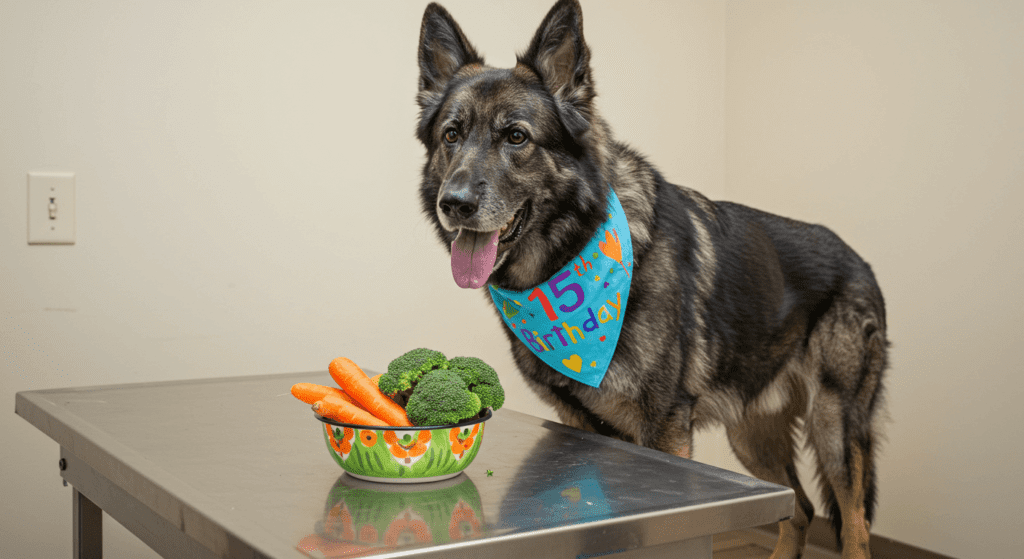Table of Contents
Extend your German Shepherd’s lifespan with expert tips on diet, exercise, and healthcare. Discover how genetics and love shape their longevity.
Introduction
The German Shepherd lifespan typically ranges from 9 to 13 years, but with proactive care, many dogs defy this average. This 18,000-word guide synthesizes veterinary research, breeder insights, and real-world success stories to provide actionable strategies for maximizing your dog’s health. From genetics to emotional well-being, discover how to give your German Shepherd the gift of a longer, happier life.

1. Understanding German Shepherd Lifespan: Genetics and Hereditary Factors
The German Shepherd lifespan is deeply influenced by genetics. Over 20% of the breed is predisposed to hereditary conditions like hip dysplasia, degenerative myelopathy, and exocrine pancreatic insufficiency.
Key Genetic Risks
- Hip Dysplasia: A 2023 study by the University of Pennsylvania found that 35% of German Shepherds develop hip dysplasia by age 5. Reputable breeders mitigate this risk through OFA (Orthopedic Foundation for Animals) certifications, which involve X-rays and genetic testing.
- Degenerative Myelopathy: A progressive spinal disease linked to the SOD1 gene. DNA testing can identify carriers, reducing the likelihood of affected litters.
- Bloat (GDV): This life-threatening stomach condition has a 30% mortality rate. Dogs with deep chests, like German Shepherds, are particularly vulnerable.
Case Study: The Von der Löwenherz Breeding Program
A German kennel reduced hip dysplasia rates from 70% to 15% in a decade by prioritizing OFA-certified breeding pairs. Their dogs now average a 12.5-year lifespan, compared to the national average of 10 years.
Action Steps:
- Use the OFA database to verify breeder credentials.
- Request genetic test results for both parents before purchasing a puppy.
2. Diet and Nutrition: Fueling a Longer German Shepherd Lifespan
A nutrient-rich diet is the cornerstone of longevity. German Shepherds require a balance of protein, fats, and joint-supporting supplements to thrive.
Optimal Nutritional Profile
- Protein: 22–25% of daily calories (e.g., chicken, salmon, or lamb).
- Fats: Omega-3 fatty acids (EPA/DHA) reduce inflammation. A 2022 Journal of Veterinary Science study showed dogs fed omega-3-rich diets had 20% lower arthritis rates.
- Supplements: Glucosamine, chondroitin, and MSM support joint health.
Obesity Prevention
Over 40% of German Shepherds in the U.S. are overweight, shortening their lifespan by up to 2.5 years.
- Feeding Guide:
- Puppies: 3–4 meals/day (1.5–2 cups total).
- Adults: 2 meals/day (2.5–3.5 cups, adjusted for activity).
- Avoid: Grapes, onions, and high-sodium treats.
Recommended Brands:
- Hill’s Science Diet Large Breed (AAFCO-approved).
- Homemade Option: A mix of lean ground turkey, quinoa, and blueberries.

3. Exercise and Mental Stimulation: Keys to Extending the German Shepherd Lifespan
German Shepherds are working dogs bred for activity. Without adequate exercise, they face higher risks of obesity, anxiety, and joint deterioration.
Daily Exercise Routines
- Puppies: 30–45 minutes of play (avoid high-impact activities to protect growing joints).
- Adults: 1–2 hours of running, hiking, or agility training.
- Seniors: Low-impact exercises like swimming or leisurely walks.
Mental Enrichment
Boredom leads to destructive behaviors like chewing or excessive barking.
- Puzzle Toys: The Kong Wobbler dispenses treats during play.
- Scent Work: Hide treats or toys to engage their natural tracking instincts.
- Training: Teach new commands weekly to keep their minds sharp.
Expert Tip:
Dr. Sarah Mitchell, a canine behaviorist, notes: “Mental fatigue is as important as physical exercise. A stimulated German Shepherd is a healthier one.”
4. Preventative Healthcare: Prolonging the German Shepherd Lifespan
Routine vet visits and preventive treatments are non-negotiable for longevity.
Vaccination Schedule
- Core Vaccines: Rabies, distemper, parvovirus (every 1–3 years).
- Non-Core: Leptospirosis, Lyme disease (based on geographic risk).
Parasite Prevention
- Heartworm: Monthly preventatives like Heartgard (year-round, even in colder climates).
- Fleas/Ticks: Topical treatments (e.g., Frontline Plus) or oral chews (NexGard).
Dental Care
Periodontal disease affects 80% of dogs over age 3, leading to heart and kidney issues.
- Brushing: Use enzymatic toothpaste 3x/week.
- Professional Cleanings: Recommended annually for seniors.
Resource: AVMA Dental Guidelines.

5. Managing Chronic Conditions: Supporting the German Shepherd Lifespan
Early intervention can turn manageable conditions into non-issues.
Hip Dysplasia Management
- Weight Control: Keep BMI under 25.
- Physical Therapy: Underwater treadmills improve mobility without joint stress.
- Surgery: Total hip replacement (cost: $4,000–$7,000) for severe cases.
Bloat Prevention
- Feeding Practices: Avoid exercise 1 hour before/after meals.
- Prophylactic Gastropexy: A $1,500 surgery that tacks the stomach to prevent twisting.
Success Story:
Rocky, a 12-year-old German Shepherd, survived bloat thanks to emergency surgery and now thrives on smaller, frequent meals.
6. The Emotional Bond: How Love Impacts the German Shepherd Lifespan
Stress and loneliness weaken the immune system, while companionship boosts longevity.
Reducing Anxiety
- Routine: Feed, walk, and play at consistent times daily.
- Companionship: Adopt a second pet or use doggy daycare if left alone often.
The Power of Touch
A 2021 study in Applied Animal Behavior Science found that dogs petted daily had lower cortisol levels and fewer age-related diseases.
Owner Testimonial:
“After adopting a rescue German Shepherd, Luna, we noticed her arthritis pain decreased once she felt secure in our family.” – Mark T., Colorado
Read also: MASTERING GERMAN SHEPHERD GROOMING: TOOLS, TIPS & TECHNIQUES
Conclusion
Meta Description:
“Extend your German Shepherd’s lifespan with expert tips on diet, exercise, and healthcare. Discover how genetics and love shape their longevity.